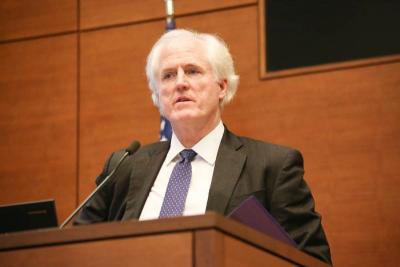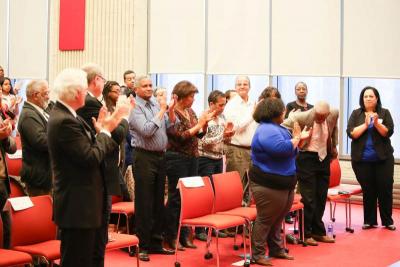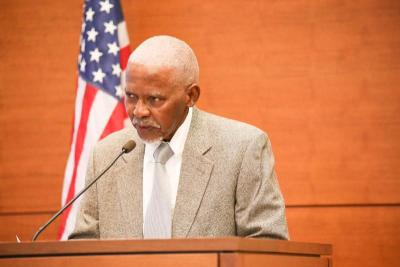Former UMass professor discusses diversity
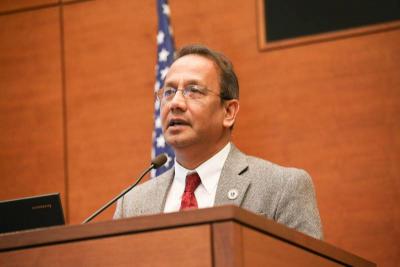
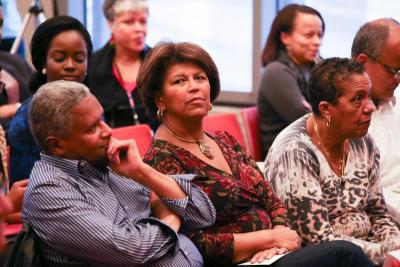
A discussion about African studies and history led to debate that UMass Dartmouth may not be doing enough to employ people of color.
Former UMass professor and notable author Dr. Thomas Ranuga was invited to the Stoico/FIRSTFED Charitable Foundation Library Grand Reading Room for the Black History Four Seasons Council's inaugural event.
Ranuga, hailing from South Africa, was hired in 1982 to teach Sociology, specializing in Third World Development and Race Relations. He retired in 2008, and holds the title of Chancellor Professor Emiritus. Since then, he’s published various articles and, most notably, “Surviving Apartheid,” a memoir of his involvement in the anti-Apartheid movement.
Ranuga was greeted to a standing ovation, immediately capturing the attention and respect of the room when he was finally introduced. Ranuga recapped the timeline of black history in America, from their forcible transport and enslavement, to Frederick Douglass laying the foundation for the Civil Rights movement, to the notorious case of Plessy v. Ferguson, which for more than fifty years would instill the “separate but equal” tenant of segregation.
“From the dark days of slavery, we have made strides,” Ranuga said.
However, despite these strides, Ranuga reminded attendees that though conditions for black people have radically improved, racism still exists.
From the days of slavery, blacks were aware that knowledge is power, Ranuga said, and that enlightenment was the only way to achieve true freedom and the only threat to white supremacy. Knowledge was the tenant of his lecture.
“Black students should fight for an education that will help them combat racism,” Ranuga said.
According to Ranuga, many of the strides in academia regarding African American studies can be credited to the Students Nonviolent Coordinating Committee. The first black department at a university was created in 1968.
“The purpose was and is to study and learn about back people and their contributions to world history and culture,” Ranuga said.
Today, there are 47 schools with African American departments and 14 PhD programs in African American studies, he added. However, UMass has yet to create an African American major or department. Currently, students can minor in African American studies department.
UMass Dartmouth’s faculty is seven percent black, according to Associate Vice Chancellor for Diversity, Equity and Inclusion Deborah Majewski. Ranuga and many black faculty members were displeased with the school’s small number of people of color in fulltime teaching positions.
According to retired professor Bruce Rose, this lack is “due to insensitivity, reluctance and outright obstruction.” Two staff members of color, both masters in African and East Pacific music, had recently been released from their employment but were reinstated at the part time level after much insistence on the students’ part, according to UMass Kekeli Ensemble instructor royal hartigan.
According to Black History 4 Seasons Council member Viviane Saleh-Hanna, there are only three female African faculty members at UMass, and just one female African American full-time staffer.
These faculty members, according to Ranuga, are instrumental in enriching their students. Education was the cornerstone of the Civil Rights movement with groups like SNCC and the “unquestionably inferior” black schools from the days before desegregation. Today, it remains just as essential to eradicating racism.
But who are the “biggest losers” of education that lacks racial diversity? According to Ranuga: white students. Without being exposed to the experiences and subcultures around them, their education is incomplete. However, as the majority, Ranuga challenges white students to reach out to students of color.
“White students have a real responsibility to reach out to the small population of black students,” he said.
Ranuga's book, "Surviving Apartheid," is available for purchase.
Black History 4 Seasons will be holding several events throughout the year.




